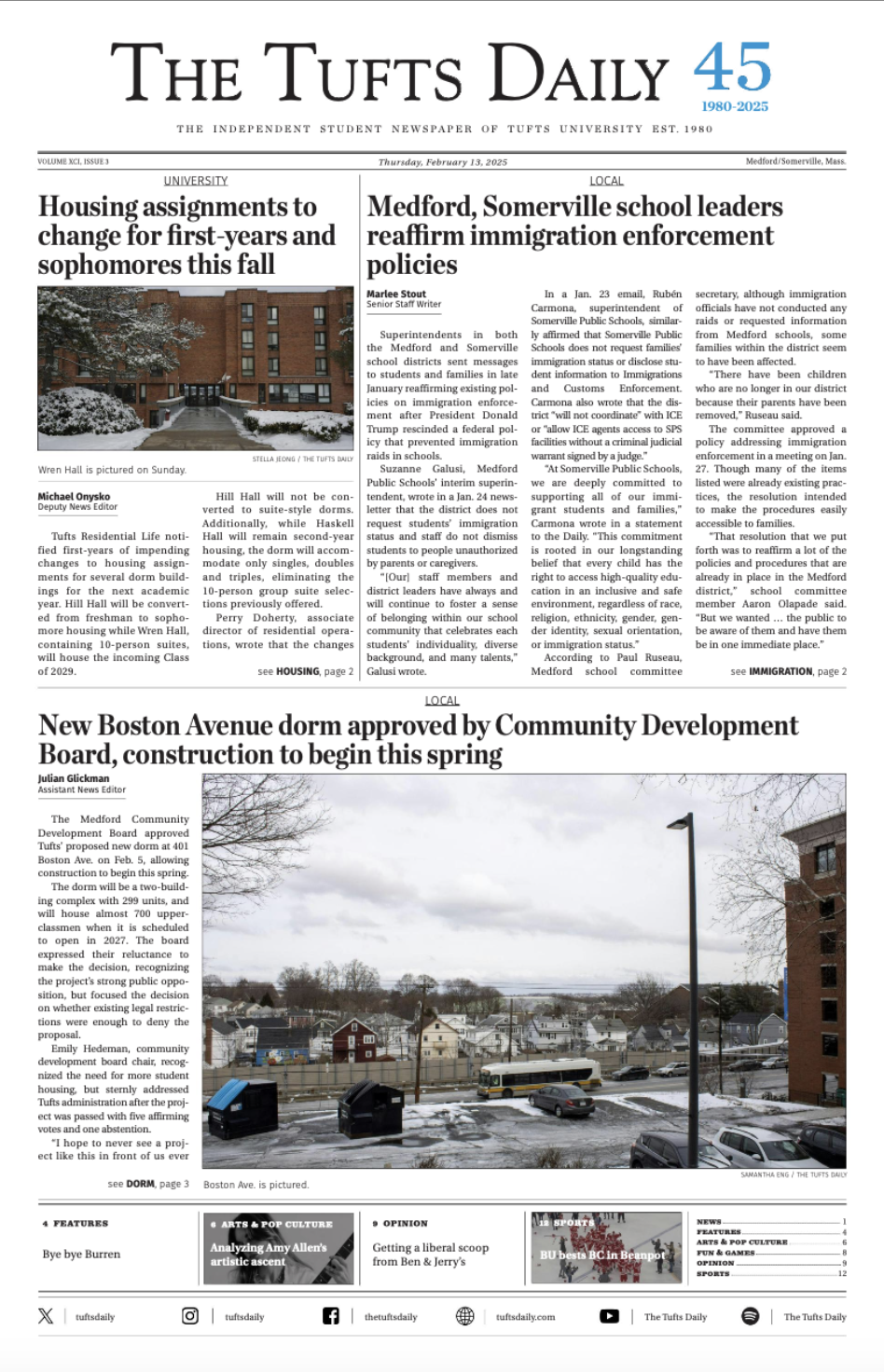Students heard last night from four Ugandan coffee growers, the Jewish nonprofit that helped them organize and members of the American company that buys their coffee. The speakers spread a message of economic justice and religious cooperation during their talk in Cabot Auditorium.
The farmers, who represented the Jewish, Catholic, Anglican and Muslim components of the Peace Kawomera Cooperative in Eastern Uganda, shared their stories.
"Peace Kawomera is a compelling example of hope and good faith," said Rabbi Jeffrey Summit, who introduced the event along with Tufts Institute for Global Leadership (IGL) Director Sherman Teichman. Hillel and the IGL co-sponsored the event.
Also in attendance were representatives from the Thanksgiving Coffee Company, a leader in the fair-trade and organic-coffee movement and the sole buyer of the cooperative's coffee, and Kulanu, a grassroots organization serving dispersed Jewish populations.
The Kawomera Cooperative was founded in 2004 by J.J. Keki, who was in attendance last night. Keki is a member of the Abayudah, the Ugandan Jewish community that numbers around 700 and lives intermixed with Christians and Muslims in the mountains of Eastern Uganda.
With coffee prices bottoming out, Keki went door-to-door and asked his Christian and Muslim neighbors to put aside their religious differences. With the help of Kulanu, the farmers formed the cooperative and named their coffee Mirembe Kawomera, which means "Delicious Peace" in the native Luganda language. Thanksgiving Coffee Company roasts and distributes coffee by this English name in the United States, and the label features a Star of David, the Islamic crescent and a cross.
Margaret Bunihizi, one of the farmers, spoke of trying to convince her fellow Catholics to join the cooperative.
"They said, 'That society belongs to the Jews.' I said, 'No. We are not about religions, we are one people,'" said Bunihizi, who has since bought a piece of land with the money she made growing coffee.
The cooperative has grown to more than 700 members, most of which are subsistence farmers for whom coffee is both a source of local pride and a means of survival.
In Uganda, one in eight livelihoods depends on coffee. But in the early part of this decade, prices had fallen to as low as $0.60 per pound. The Thanksgiving Coffee Company pays the farmers of Kawomera $1.31 per pound for their coffee, more than four times the price paid by non-fair-trade companies. Kawomera has tripled its purchase amount from 37,000 pounds in 2004 to 112,000 pounds in 2007.
Fair-trade prices, said Summit, are "literally the difference between going into debt and being able to afford malaria medication, basic healthcare, provide clothing and to send children to school."
Thanksgiving Coffee Company, a family-owned business, has been a leader in the push for organic, shade-grown and fair-trade coffee. Founders Paul and Joan Kazteff were in attendance last night.
"We are in the business of creating a different kind of business, so business can create a different kind of world," said employee Ben Corey-Moran, one of the event's panelists.
Students from the IGL presented the annual Dr. Jean Mayer Global Citizenship Award to the Peace Kawomera Cooperative, Thanksgiving Coffee Company and Kulanu. The award was established by the IGL in 1993 to honor the former Tufts president, who believed in the application of research and scholarship in solving global problems.
"You have given us a powerful weapon to continue ... bringing peace to the world," Keki said of the students who presented the award. He said the award was the first one the Kawomera Cooperative had received.
Along with fellow farmer Samuel Ngogo, Keki urged students to consider the warfare in the Middle East and Kenya, Uganda's neighbor to the east.
"We are all brothers and sisters," he said. "Let's wake up."





